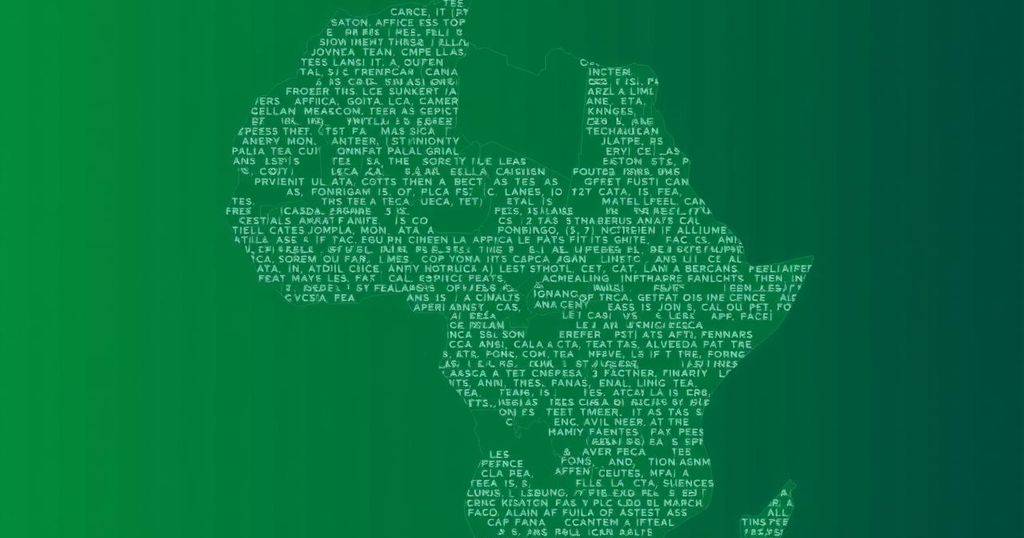The COP 29 climate summit failed to fulfill necessary climate finance commitments for developing countries, particularly those in Africa, undermining efforts to address climate change. The anticipated mobilization of funds is greatly outmatched by actual needs, with historical polluters not assuming their responsibilities, leading to dire implications for vulnerable populations already facing extreme weather impacts.
The recent COP 29 climate summit has once again highlighted the profound inadequacies in climate finance, particularly impacting developing countries, especially in Africa. Despite the expectation of achieving a $1.3 trillion annual climate finance goal to combat the escalating impacts of climate change and to adhere to the target of limiting global temperature rise to below 1.5 degrees Celsius, the outcomes from Baku were disheartening. The summit failed to embrace ambitious and equitable climate finance solutions, ultimately sidelining the needs of the most vulnerable populations facing extreme weather events.
The inadequacy of the outcomes from COP 29 leaves developing countries in a precarious position, failing to fulfill the ambitions established under the Paris Agreement. Nationally Determined Contributions (NDCs) play a vital role in realizing these promises, yet current NDCs are insufficient to meet the crucial 1.5-degree target and, according to reports, would still lead to a catastrophic increase of 2.8 degrees by the century’s end.
Despite the principles of equitable assistance highlighted in climate conventions, the recent discussions exposed a persistent lack of adequate financial support for these nations, hampering their endeavors to meet their NDCs. The failure to mobilize sufficient climate finance indicates that historical polluters are not only neglecting their responsibilities but are also passing the burden onto countries already suffering from the consequences of climate inaction.
Misleading portrayals of financial commitments from wealthy nations have surfaced. As highlighted by Fadhel Kaboub from Power Shift Africa, the anticipated mobilization of $300 billion by 2035 is grossly underestimated when accounting for inflation and the considerable debt burden that African nations are currently tackling. He aptly states, “African countries are paying $163 billion in debt service this year alone. That is how serious the Global North is about climate action.”
The reliance on carbon markets, touted as potential avenues for climate financing, has been criticized as ineffective and deceptive. Many carbon offset initiatives have proven to lack significant emissions reductions, fueling skepticism about their effectiveness. Mohamed Adow, also from Power Shift Africa, warns that these markets allow richer nations to continue polluting while shifting the obligation onto developing countries, further jeopardizing climate goals.
Adopting ambitious climate finance strategies is crucial for addressing adaptation needs and loss and damage in developing countries. Yet recent outcomes reveal a stark contrast to the $400 billion annually required by these nations to adapt to climate change impacts, with the proposed funding insufficient to prevent severe repercussions to their livelihoods.
The structural barriers leading to insufficient climate finance are not due to a lack of available funds; rather, they stem from political failures to reallocate resources toward effective climate action. With fossil fuel subsidies reaching unprecedented highs, there exists an urgent need for shifting these funds toward impactful climate policies. The outcomes from COP 29 do not hold polluters accountable, as there were no proposals to tax high-emission corporations for the climate actions they must take.
Advocacy for increased climate finance should include the implementation of taxes on the ultra-wealthy and polluting corporations. Generating crucial revenue from these taxes can not only enhance climate action but also promote global wealth redistribution necessary to combat inequality. Such measures are essential to effectively tackle the climate emergency and support vulnerable nations affording them a fair chance at sustainable development.
The climate finance landscape is crucial for fostering global responsibility in addressing climate change, particularly for developing nations that bear the brunt of its destructive effects. The COP meetings, stemming from the Paris Agreement, aim to establish frameworks for nations to commit equitable financial support to mitigate climate impacts. Historically, wealthier nations have been challenged to fulfill their financial commitments, leading to significant shortfalls in support for vulnerable regions. The recent COP 29 summit was positioned to address these issues, yet the outcomes fell short of delivering the necessary financial commitments to meet the urgent needs of developing nations, fundamentally failing to align with the climate emergency.
The dismal outcomes from COP 29 underscore the need for a reassessment of climate finance commitments, particularly for developing nations struggling to cope with climate impacts. Critical financial assistance and accountability from historical polluters are essential to ensure equitable support that enables vulnerable countries to adapt and mitigate the effects of climate change. Without robust funding mechanisms and genuine political will, the ambition to limit global warming will remain out of reach, jeopardizing future generations.
Original Source: www.greenpeace.org







